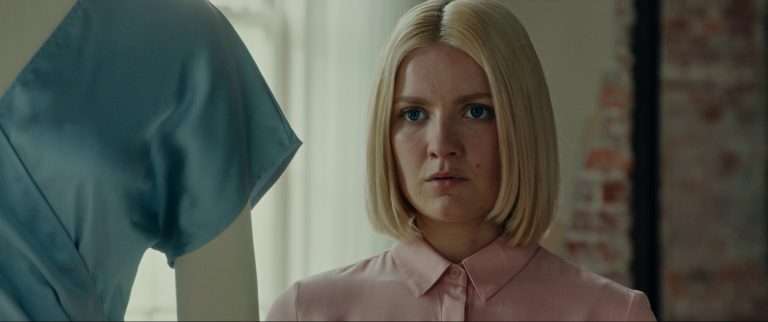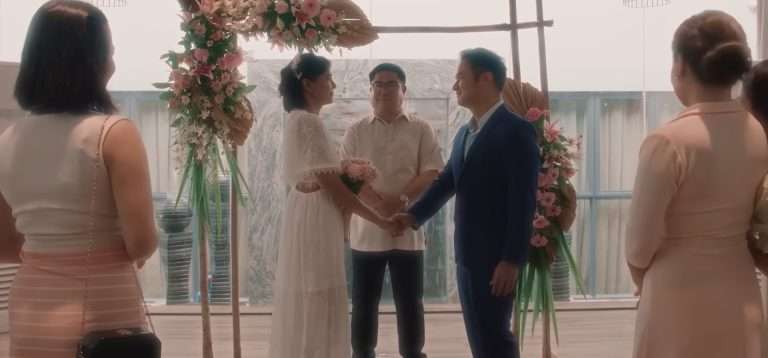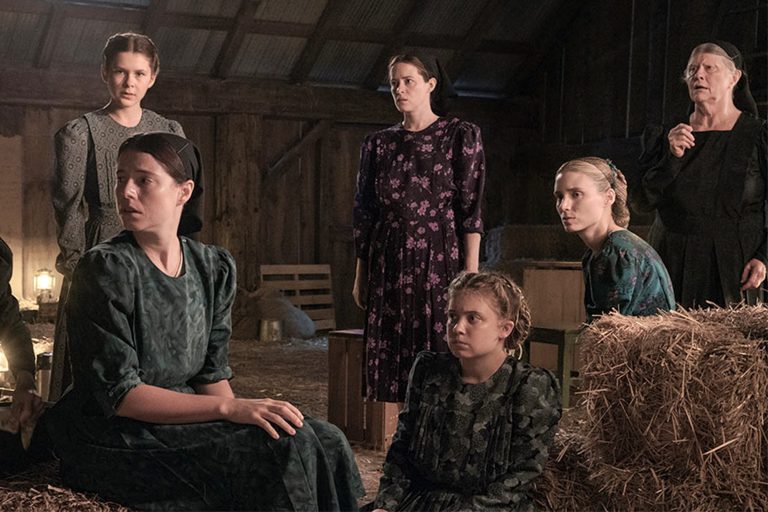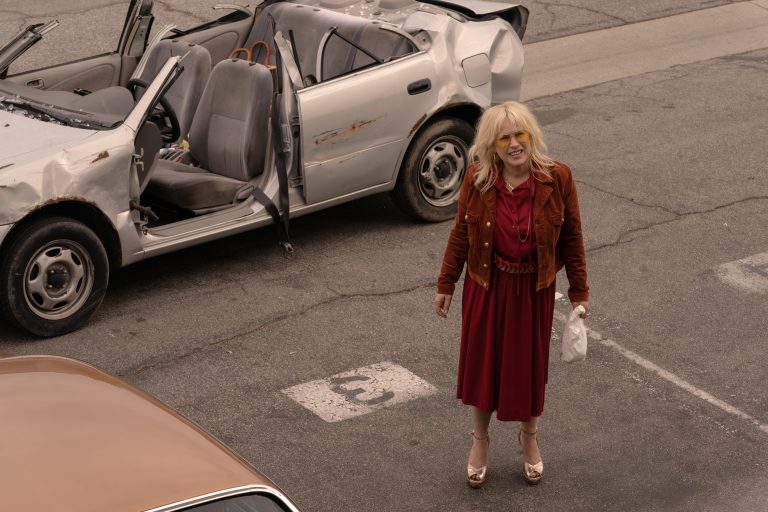Dan Gilroy’s Nightcrawler (2014) is a haunting, neon-soaked plunge into the darkest recesses of the American dream. What begins as the tale of a small-time hustler angling for success in Los Angeles gradually mutates into a psychological thriller steeped in obsession, manipulation, and moral rot. Jake Gyllenhaal’s Lou Bloom isn’t merely chasing the news—he’s manufacturing it. Each scene pulses with the uneasy tension between ambition and humanity, as Gilroy poses a chilling question: when profit thrives on tragedy, what happens when the man behind the camera begins orchestrating the nightmare?
Spoilers Ahead
Nightcrawler (2014) Plot Summary & Movie Synopsis:
When we first meet Lou Bloom, he’s a nobody, a petty thief scavenging through LA’s industrial wasteland, stealing manhole covers and fencing them to sell for scrap. He’s intelligent but unnervingly detached, a man who reads self-help quotes like scripture and recites them as if rehearsing for a job interview no one asked for.
After being rejected for honest work at a scrapyard, Lou stumbles upon his calling by accident, literally. Late one night, he witnesses a fiery car crash and sees freelance cameramen, or “stringers,” filming the wreckage to sell the footage to TV stations. One of them, Joe Loder (Bill Paxton), casually explains the business to him. To Lou, it seems like an opportunity carried under the name of journalism.
Lou pawns a stolen bicycle for a camcorder and a police scanner. Within days, he’s prowling the streets looking for tragedy. After a few failed nights, he finally lands shocking footage of a fatal carjacking. When he sells it to KWLA 6, the morning news director Nina Romina (Rene Russo) recognizes something raw and ruthless in Lou, and maybe in herself. She encourages him to bring her more “graphic” footage from wealthy, suburban neighborhoods.
It’s not long before Lou blurs the line between observer and manipulator. He moves bodies for better angles, trespasses on crime scenes, and edits out details that don’t suit his narrative. His success grows with each moral compromise. He buys faster cars, better cameras, and hires an assistant, Rick (Riz Ahmed), a naïve, homeless young man desperate for any form of employment. Together, they become nocturnal predators, feeding the public’s hunger for horror, one broadcast at a time.
What Drives Lou Bloom to Cross Every Line?
Lou isn’t driven by money or fame. He’s driven by control. Every word he speaks sounds rehearsed, as if downloaded from a corporate training video. He views morality as inefficiency and emotion as a distraction. What he really wants is dominance, over people, over narratives, over chaos itself. When Nina hesitates to air footage, Lou blackmails her into submission, demanding sexual favors and professional credit in exchange for exclusivity. Their dynamic is disturbing but mutually parasitic, i.e., she needs ratings, he needs validation. Gilroy turns their relationship into a critique of modern media, where the line between news and entertainment dissolves completely.
Joe Loder, the seasoned stringer who once dismissed Lou, becomes his first real rival. When Joe beats him to a plane crash story and gloats about it, Lou’s obsession with control spirals. Soon after, Joe suffers a mysterious car crash, one that Lou just happens to record in perfect cinematic framing. It’s never confirmed whether Lou caused the crash, but his eerie calm while filming Joe’s mangled body says it all.
Why Does Lou Withhold Evidence of the Home Invasion?
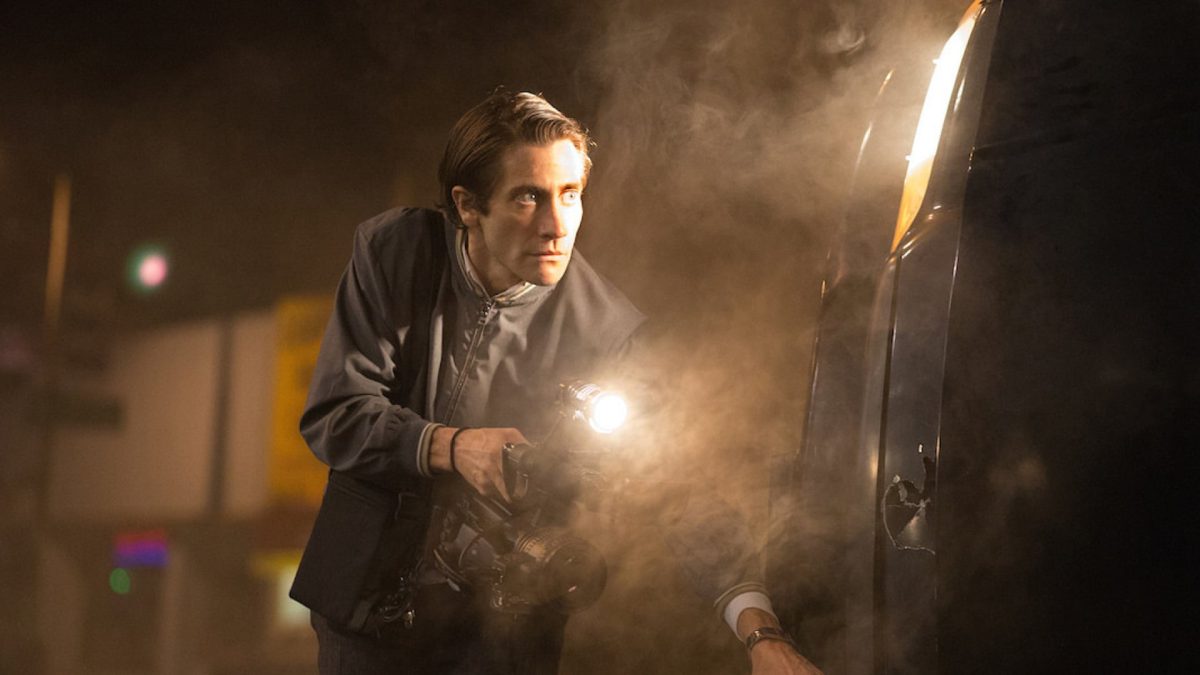
Also Read: Nightcrawler (2014): The Unveiling of ‘Behind the Scene Deception of the Media
Lou and Rick arrive at the aftermath of a triple homicide in Granada Hills before anyone else. Lou captures the masked gunmen fleeing and films the dead victims inside, but deliberately edits out the part showing the killers’ faces. He knows the footage will ignite panic, and panic means profit.
When the police later question him, Lou gives them doctored footage, lying about what he saw. Detective Frontieri suspects his manipulation but can’t prove it. Lou isn’t just reporting crime anymore. He’s orchestrating it. By withholding key evidence, Lou traps both the police and the audience in his narrative. He becomes the puppet master of fear, controlling not just the story but the city’s perception of danger.
What Happens Between Lou and Rick?
Rick, initially grateful for the job, slowly realizes he’s working for a highly manipulative guy. When Lou decides to track the gunmen themselves instead of informing the police, Rick’s conscience flares. He demands a raise and, later, half of the reward money. Lou agrees, but with that cryptic line, “You can’t un-ring the bell.” At that moment, Lou seals Rick’s fate. When they find the gunmen, Lou waits until they enter a crowded diner before calling the police, ensuring a violent confrontation perfect for television.
What follows is chaos, gunfire, casualties, and a high-speed chase through downtown LA. Lou and Rick follow, filming everything like war correspondents in their own moral apocalypse. After the final crash, Lou sends Rick closer to film the “dead” gunman. Rick hesitates but obeys. The gunman suddenly opens fire, hitting Rick fatally. Lou films his dying assistant, calmly telling him he can’t work with someone who isn’t trustworthy. It’s a chilling moment of pure sociopathy. Lou engineered Rick’s death to remove a liability and capture the perfect ending shot.
Why Does Nina Continue to Support Lou?
Because she’s addicted to the results. Nina continues to engage with Lou because he provides her with precisely what she requires: the results. Behind the efforts of professionalism and the posturing of newsroom politics, and in the middle of the common struggle of a woman under constant stress, Nina is in a precarious position.
As the news director of KWLA 6, her news organization is hanging in the balance. Her contract is almost up. Her ratings are performing poorly, and she is doing so in an industry where fear sells faster than facts. Lou’s persuasive appeal and grotesque genius present both a solution and a setback for Nina.
When he walks into her newsroom with raw footage of a carjacking, Nina immediately connects with something in him that reflects some part of her own struggle. Lou is not just offering Nina powerful stories. He is starting to give her a seat at the table in terms of control over the narrative. The footage generates fear, drives up the ratings and viewership, and earns Nina the real-time validation she’s looking for from her network executives.
Over time, Nina becomes dependent on Lou, both professionally and psychologically as well. Lou is aware of her growing dependency and exploits it, in return for exclusive access to her stories, which he demands sexual favors for, higher pay, and public credit. Even as his methods become increasingly unethical, Nina defends him because he represents her last shot at survival in a system that rewards sensationalism. She justifies her complicity as “just doing her job.” But in reality, she’s feeding the same moral rot Lou embodies. By the end, Nina isn’t just supporting Lou, she’s enabling him, and in doing so, she becomes part of the spectacle he creates.
Nightcrawler (2014) Movie Ending Explained:
Does Lou Bloom Get Away With It?
Yes. Despite Detective Frontieri’s efforts to catch him, Lou walks free. He fabricates a story about being chased by the gunmen, and with no solid evidence, the police can’t hold him. Meanwhile, KWLA airs the footage, and ratings soar. Nina defends him publicly, and Lou emerges as the star of the new media age, a symbol of how corruption wears a smile and carries a camera.
In the final scene, Lou arrives with two fully equipped vans and a team of interns. He tells them he’ll never ask them to do anything he wouldn’t do himself, a chilling echo of everything we’ve seen him do. The camera pans out as his vans roll into the Los Angeles night, sirens wailing in the distance, ready for more carnage.
Nightcrawler ends not with justice but with triumph, and that triumph exposes the moral vacancy of modern media. Lou’s rise is not a fluke. It is the natural outcome of a system that rewards the man’s instincts and methods. He never truly corrupts journalism, because journalism is already drifting toward the world he embodies. In Lou’s reality, empathy turns into a weakness, and truth becomes a tool to reshape as needed.
By the final moments, he is no longer a thief or a reporter. He has evolved into a modern predator who feeds on suffering and repackages it as entertainment. Gilroy’s point is unmistakable: Lou not only records monsters. He becomes one. The greater horror is that he succeeds and that we continue to watch without turning away.

